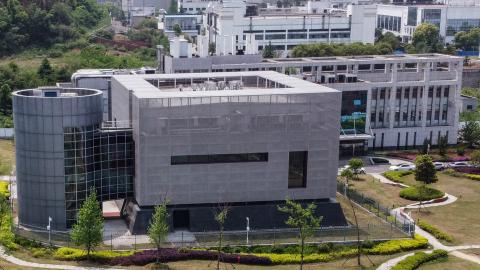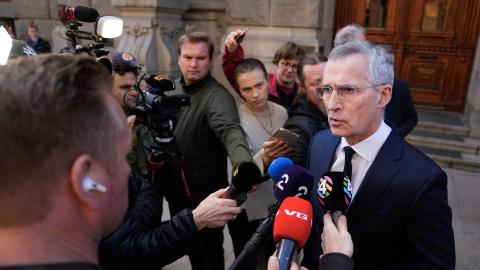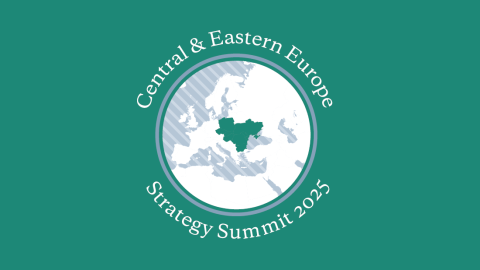* list 1 years ago, Honduran officials took preemptive action to stop Hugo Chavez acolyte Manuel
* list 2 years ago, Honduran officials took preemptive action to stop Hugo Chavez acolyte Manuel
* list 3 years ago, Honduran officials took preemptive action to stop Hugo Chavez acolyte Manuel
- list 1 years ago, Honduran officials took preemptive action to stop Hugo Chavez acolyte Manuel
- list 2 years ago, Honduran officials took preemptive action to stop Hugo Chavez acolyte Manuel
- list 3 years ago, Honduran officials took preemptive action to stop Hugo Chavez acolyte Manuel
Four years ago, Honduran officials took preemptive action to stop Hugo Chavez acolyte Manuel Zelaya from transforming their country into a Venezuelan-style autocracy. Zelaya had proposed an illegal referendum in hopes of abolishing term limits and extending his presidency. When the Honduran Supreme Court rejected his gambit as unconstitutional, he tried to proceed anyway, using orchestrated violence to intimidate his opponents. That's when the Supreme Court authorized his removal from office. Zelaya was arrested by the military and put on a plane to Costa Rica.
His ouster from the presidency -- which was supported by Honduras' National Congress, its Supreme Court, its Supreme Electoral Tribunal, its attorney general and its national prosecutor -- was legal and constitutional, as a U.S. Law Library of Congress study later confirmed. But Zelaya's exile was not, and it gave ammunition to critics who were eager to paint the whole episode as a military coup. To be sure, Honduran military leaders had good reasons for sending the would-be dictator abroad. As General Romeo Vasquez told the Miami Herald: "We felt that if he stayed here, worse things were going to happen and there would be bloodshed. He had already been acting above the law." Indeed, given Zelaya's demonstrated willingness to enlist armed thugs in the service of his political goals, it was perfectly reasonable to fear that jailing him in Tegucigalpa (or some other Honduran city) would spark a violent rebellion among his followers.
Still, by shipping him to Costa Rica, Honduran authorities cemented the notion that Zelaya's expulsion from office had been a coup. To this day, leftists and others across Latin America -- along with many journalists and think-tank scholars in the United States -- continue to depict his 2009 ouster as an illegal assault on democracy. Meanwhile, Zelaya himself is back in Honduras, having been granted an amnesty for all constitutional violations stemming from his attempted power grab.
Which brings us to the November 24 Honduran national elections. Zelaya is now running for a seat in the legislature, and his wife, Xiomara Castro, is running for the presidency. In fact, recent polling suggests that Castro is in a dead heat with her main rival, Juan Orlando Hernandez, head of the National Congress and a member of the ruling party. An avowed socialist whose platform calls for various nationalization schemes, Castro is representing the Liberty and Refoundation Party, which was launched by her husband. "At rallies, supporters often cheer more for him than for his wife," notes a Reuters dispatch from Tegucigalpa.
So what is Zelaya's agenda? Pretty much the same agenda he had back in 2009. Upon returning to Honduras from exile in May 2011, the ex-president made it clear that he still harbored "revolutionary" ambitions: "We're pushing for a Constituent Assembly to retake power," he told a crowd of his disciples. "I came to participate in what the people want -- revolutionary processes that will make this country move forward." His wife has expressed her own support for a Constituent Assembly, and she generally favors the same brand of radical populism as her husband. Speaking to the Washington Post this past summer, Honduran analyst Raul Pineda described Castro's candidacy as "a project of the international left." Her election could very easily plunge Honduras into yet another cycle of political instability.
The current Honduran president is Porfirio Lobo, who was elected in November 2009 and is constitutionally prohibited from seeking another term. While Lobo's initial efforts to promote post-Zelaya reconciliation were commendable, it was a mistake to let Zelaya reenter Honduran politics, and Lobo's presidency as a whole has been a major disappointment. In fairness, Honduras suffers from weak institutions across the board, which helps explain why Lobo's well-meaning attempt to reduce police corruption wound up triggering a fresh political crisis in late 2012.
To summarize briefly: Four justices on the Supreme Court had drawn the president's ire by consistently declaring his initiatives unconstitutional. Last November, they invalidated a police-reform law, ruling that it violated due-process rights. Lobo was furious, and the National Congress -- which is controlled by his party (the National Party) -- responded by enacting the law anyway and sacking the four justices who had rejected it. Some argued that dismissing the judges was illegal, with United Nations Special Rapporteur Gabriela Knaul calling it "a grave attack against Honduras's democracy." In February, a revamped Supreme Court declined to hear the judges' appeal, which seemed to confirm fears that the rule of law was collapsing.
Weak institutions are closely related to Honduras's number-one problem, which is violent crime. In 2012, its national homicide rate was 86 per 100,000, making Honduras the most murderous country in the world. It is a nation where, in the words of State Department official Rick Barton, citizens "feel almost powerless to loosen the grip of gangs, transnational criminal organizations and corrupt officials." Back in May, Marguerite Cawley of InSight Crime reported that "extortion and threats by criminal gangs led to the shutdown of an estimated 17,500 small businesses in Honduras over the past year."
Because of its location between the world's largest cocaine-producing countries (Bolivia, Colombia and Peru) and the world's largest cocaine-consuming country (the United States), Honduras is a major transit point for the global drug business. The U.S. government estimates that "87 percent of all cocaine smuggling flights departing South America first land in Honduras." A popular landing zone is the so-called Mosquito Coast, a stretch of Caribbean shoreline running from southeastern Nicaragua up through northeastern Honduras. In early August, a drug-related shootout along Honduras' portion of the Mosquito Coast left 17 people dead.
According to Honduran General Rene Osorio, the gangs were fighting over a 1,500-pound cocaine shipment.
Not only are Hondurans being tormented by Mexican drug-trafficking organizations such as the Zetas and Sinaloa cartels, they are also struggling with rampant violence among street gangs (or maras) such as MS-13 and Barrio 18. (The conditional "truce" announced by members of MS-13 and Barrio 18 last spring has apparently done very little to stem the violence.) More than two-thirds of Hondurans live in poverty, which helps make the country a fertile recruiting ground for organized crime. While Honduras has been posting decent economic growth, considering all the bloodshed it has endured, its public finances are a mess and the national deficit is now equal to six percent of GDP.
Not surprisingly, there is widespread frustration with the status quo. According to the latest Latinobarometro poll of 18 Latin American nations, Hondurans are the least satisfied with "the way democracy works" in their country. In June 2012, National Human Rights Commissioner Ramon Custodio Lopez told The Economist that Honduras was "on the way to becoming a failed state." Roughly a year later, he told the same magazine: "The rule of law in this country has broken down."
Indeed, the weakness of Honduran legal institutions has fostered a culture of impunity in which few homicides are ever prosecuted. This has emboldened the gangs and cartels to assassinate politicians, activists and journalists. In 2011, Alfredo Landaverde, the former head of Honduras' Anti-Narcotics Commission, was killed by gunmen after publicly accusing senior government officials of being connected to the drug trade. More recently, in June 2013, a well-known television broadcaster named Anibal Barrow was kidnapped in the city of San Pedro Sula, which may well be the world's murder capital. (In 2012, the San Pedro Sula homicide rate was an astonishing 173 per 100,000.) A few weeks later, Honduran authorities discovered Barrow's burned and decapitated corpse next to a lagoon. "There is fear," Tegucigalpa-based TV reporter Manuel Antonio Alcantara told the Associated Press. "What happened to Anibal and his family today could happen to one of us tomorrow."
Honduran police units are hopelessly corrupt and widely distrusted. According to a Congressional Research Service study, more than three-quarters of Hondurans "report having little or no confidence in the police force." The country's National Police chief is General Juan Carlos Bonilla, who has been accused of significant human-rights abuses. In a recent interview with AP correspondent Alberto Arce, General Bonilla denied operating "death squads" or ordering the kidnapping of gang members. If you're wondering why someone with such a dubious record was chosen to be Honduras' top cop, the depressing reality, as a former Honduran National Police Academy professor told Arce, is that General Bonilla "was the only top police commander without known links to organized crime."
The violence in Honduras is part of a broader explosion of drug- and gang-related crime across Central America's Northern Triangle. In a recent paper, former Washington Post reporter and Latin America expert Douglas Farah showed that the Honduran, Guatemalan and Salvadoran governments have "moved beyond being weak, somewhat corrupt and unresponsive to almost non-functional in much of their national territories." Much of northern Guatemala, for example, is dominated by the Zetas Cartel.
Curbing drug violence and transnational criminal activity in Central America should be a top U.S. priority. It may well require a program like Plan Colombia, the successful U.S. aid initiative started by President Clinton in 2000. Washington is already aiding the Northern Triangle governments through bilateral development assistance and also through the Central America Regional Security Initiative (CARSI). (In fiscal year 2012, Honduras received nearly $25 million in CARSI funds.) Yet more help is urgently needed to build stronger public institutions, especially in Honduras. The time for serious U.S. action is now, before countries such as Honduras genuinely do become failed states.

















